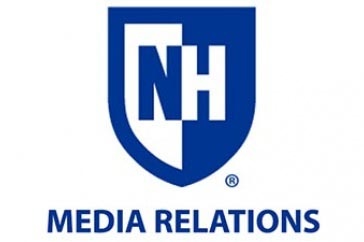MEDIA ADVISORY: UNH Hosts Discussion on University-Wide COVID Testing

WHAT: The University of New Hampshire will host a virtual panel discussion about COVID-19 testing with four schools that successfully launched university-wide programs. Panelists from the University of New Hampshire, Georgia Institute of Technology, University of Illinois and Purdue University will discuss the initiatives that helped to keep their campuses open for in-person learning while protecting their communities from COVID-19. The panelists (see below) will discuss their experiences and answer questions about the challenges they faced and the lessons they learned this semester. Guest moderator is Amelia Nierenberg, Coronavirus Schools Briefing newsletter writer at The New York Times.
WHEN: Tuesday, Dec. 8, 2020, 10:30 a.m.-12:30 p.m. EST
WHERE: Registration is required in order to receive a zoom webinar link for the discussion.
PANELISTS:
Marian McCord, senior vice provost for research, economic engagement and outreach, UNH
Marc Sedam, vice provost for innovation and new ventures, UNH
Kelley Thomas, director of the Hubbard Center for Genome Studies, UNH
Paula Mouser, associate professor of civil and environmental engineering, UNH
Greg Gibson, director of the Center for Integrative Genomics, Georgia Tech
Martin Burke, associate dean of research, Carle Illinois College of Medicine, University of Illinois at Urbana-Champaign
David Broecker, chief innovation and collaboration officer for Purdue Research Foundation, Purdue University
The University of New Hampshire inspires innovation and transforms lives in our state, nation and world. More than 16,000 students from all 50 states and 71 countries engage with an award-winning faculty in top-ranked programs in business, engineering, law, health and human services, liberal arts and the sciences across more than 200 programs of study. As one of the nation’s highest-performing research universities, UNH partners with NASA, NOAA, NSF and NIH, and receives more than $110 million in competitive external funding every year to further explore and define the frontiers of land, sea and space.
Latest News
-
June 18, 2024
-
June 18, 2024
-
May 17, 2024
-
May 14, 2024
-
May 7, 2024

















































